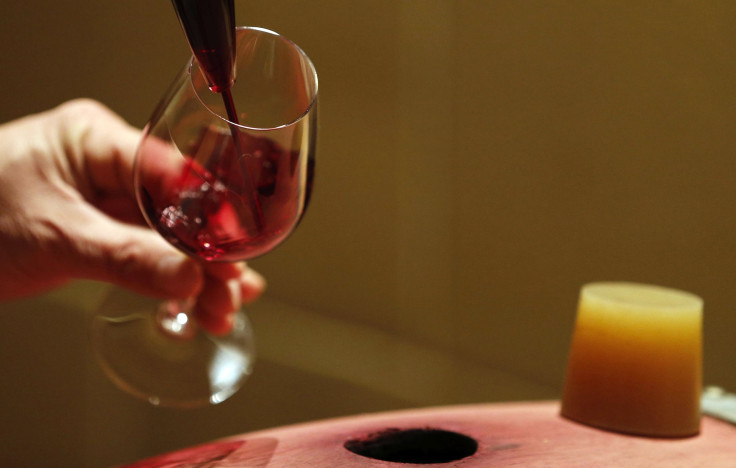Red Wine Can Help Slow Onset Of Dementia, Alzheimer's: Study

A team of researchers at the Georgetown University Medical Centre have linked the consumption of pure form of resveratrol to the decline in the speed at which dementia and Alzheimer's progresses. Resveratrol is a chemical compound present in dark chocolate, red wine, red grapes and raspberries.
When exposed to high doses of pure resveratrol, the researchers found that the biomarker that declines with the progression of the Alzheimer's became stabilized in people with mild to moderate form of the disease. But the dosage was so high that a person would have to rely on the amount of resveratrol contained in 1,000 bottles of red wine per day to slow down the underlying process causing the disease.
During the study, the researchers gave one gram of pure resveratrol twice a day to a group of 119 participants. The resveratrol clinical trial was a randomized, phase II, placebo-controlled, double blind study. Prior to the study, the researchers sent an “investigational new drug” application of the U.S. Food and Drug Administration, or FDA, to get an approval to test the pure synthetic resveratrol, which is not commercially available.
The researchers observed that people who were treated with high doses of resveratrol showed no change in the amyloid-beta40, or Abeta40, levels in the blood and cerebrospinal fluid. On the other hand, the group who was taking the placebo showed a decline in the Abeta40 levels, as compared to the initial levels.
“A decrease in Abeta40 is seen as dementia worsens and Alzheimer’s disease progresses; still, we can’t conclude from this study that the effects of resveratrol treatment are beneficial,” said lead researcher R. Scott Turner, in the university press release. “It does appear that resveratrol was able to penetrate the blood brain barrier, which is an important observation. Resveratrol was measured in both blood and cerebrospinal fluid.”
However, the researchers have warned that the study findings cannot be directly used to recommend resveratrol to the patients. The researchers say that further research is required to interpret the findings correctly.
© Copyright IBTimes 2025. All rights reserved.




















